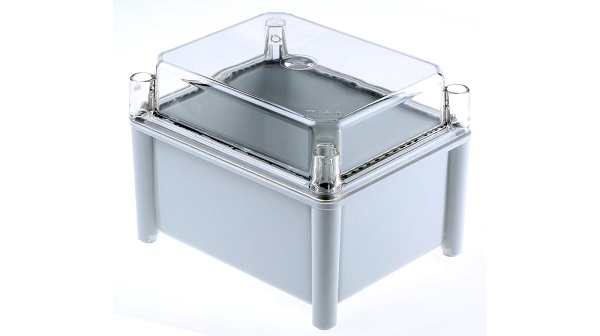As a business owner, it is important to make sure that your vital electrical systems are safe. For this, you need to install enclosures for your indoor and outdoor equipment. Some of the parts that need enclosures are your wireless hardware, terminal wiring, instrumentation, electrical controls, and other sensitive electrical or electronic components.
There is a wide range of multi-purpose enclosures made from a variety of different materials, such as aluminium, plastic and fibreglass that come with their own distinctive characteristics and advantages. Take a look at the range at RS Components.

Other than providing aesthetic value to your workplace, fibreglass enclosures are durable, long-lasting and also protect your equipment from harsh conditions and hazards such as water, chemicals, extreme temperatures, oil, dust, dirt and other extreme weather conditions.
Fibreglass enclosures are used for a wide range of scenarios. What are the ideal environments or situations for using them?
Chemical and corrosive environments
Fibreglass enclosures are capable of handling dangerous and corrosive chemicals that metal enclosures are not able to handle. The process of being moulded under high pressure and heat, and then reinforced with a polyester resin makes them chemical and rust-resistant in corrosive habitats.
High impact environments
In addition to handling harsh chemical products, they are impervious to dents and stronger than metal. The ability to withstand high tensile loads and impact from outside sources makes it an ideal candidate for outdoor and factory environments.
Extreme temperature conditions
They can withstand a temperature range of -40C to 121C making it suitable for high and low-temperature environments. Fibreglass enclosures are made of glass that is spun into fibres and then combined with plastic polymers, making them fire-resistant.
External and internal interference
Another major advantage associated with fibreglass enclosures is that they are radio frequency transparent. If your office has electronic equipment or applications that should be protected from external interference, they are the apt choice. It also helps in protecting your employees from hazardous materials within the housing.
Noisy settings
The other benefit of a fibreglass electrical enclosure is its acoustics, i.e., its attribute to absorb sound waves. It is ideal to use these where you need to meet permissible sound levels or you want to control or reduce noise exposure.
Moist or wet circumstances
Fibreglass, when exposed to moisture, does not hold or absorb the water. This characteristic makes it ideal for environments that are consistently wet. Most fibreglass enclosures carry a NEMA 6 rating for temporary submersion.
Conducive conditions
Fibreglass enclosures are also popular for its non-conducive property. This means that they can maintain complete environmental integrity with maximum electrical safety. It is an ideal choice if your business has such requirements.
Installing fibreglass enclosures in your office or commercial premises means that you are not only getting a reliable shelter for your equipment but also safety and protection. They are cost-effective compared to enclosures made from other materials.
